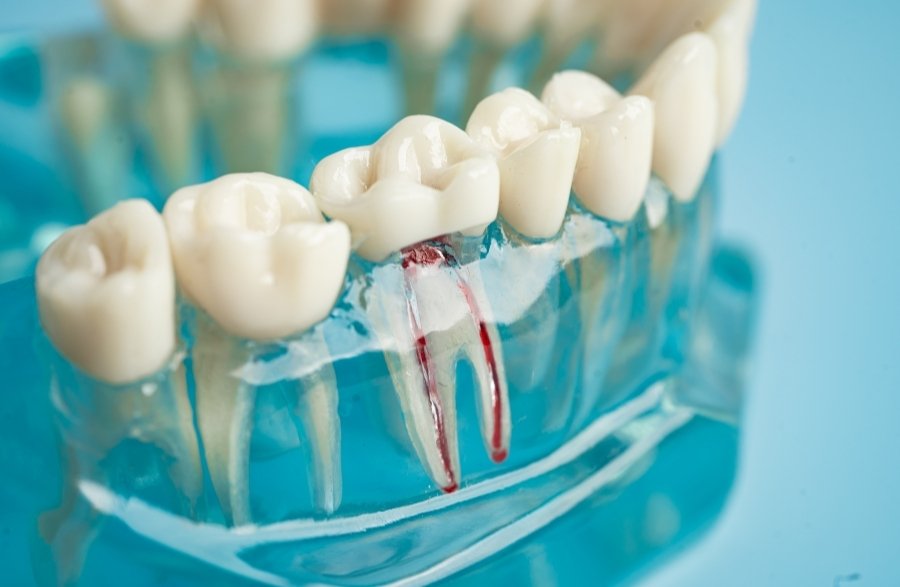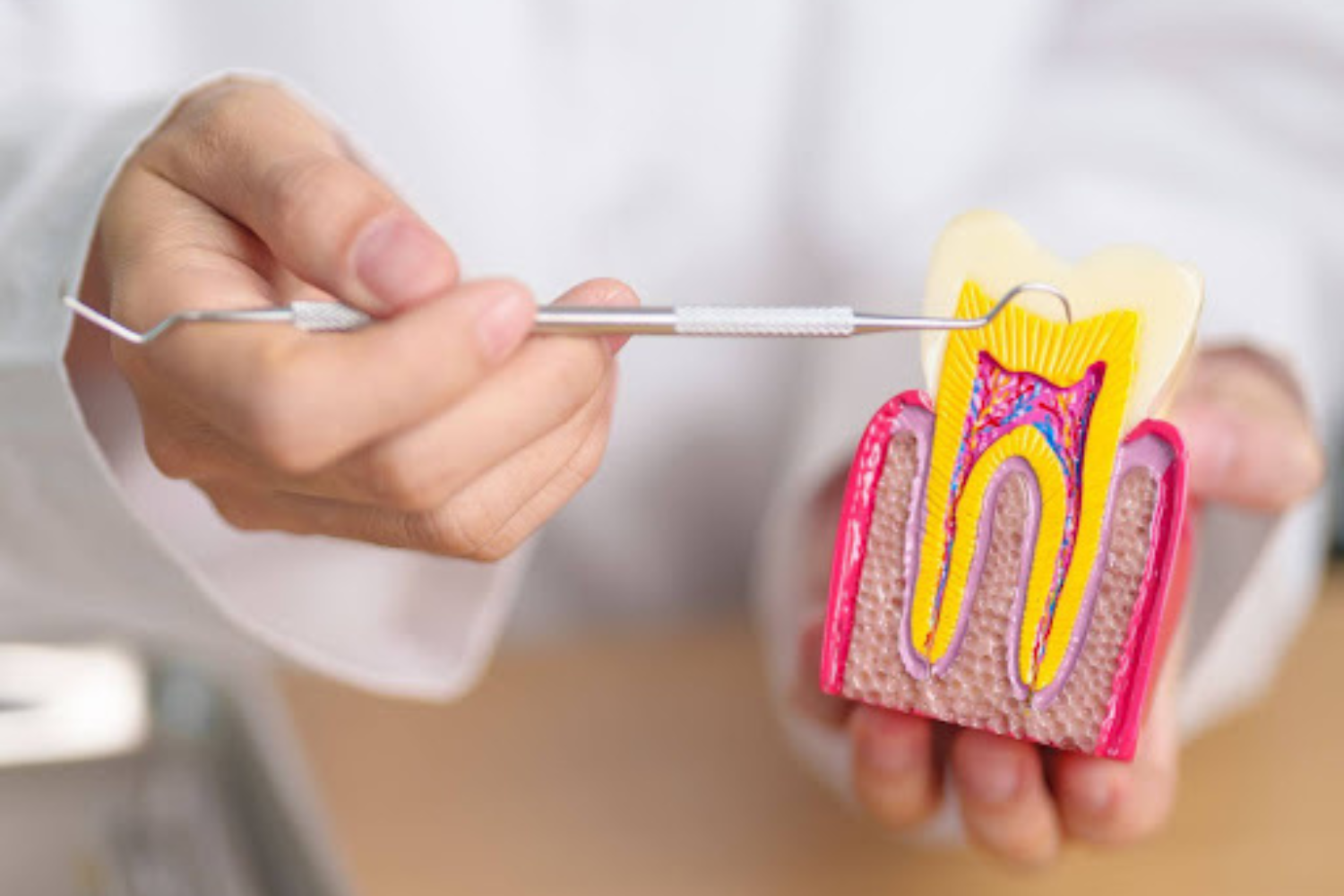
A root canal is a common dental procedure performed to save a severely damaged or infected tooth. While the procedure itself is designed to alleviate pain, many patients wonder about pain management after the root canal. It’s normal to experience some discomfort following the treatment, but understanding what to expect can help you manage it effectively.
In this blog, we’ll discuss the pain you might feel after the procedure and tips to minimize it. We’ll also guide you on the necessary aftercare, helping you heal smoothly and maintain your dental health.
What Happens During a Root Canal?
A root canal treatment involves removing the infected or damaged pulp inside the tooth, followed by cleaning and sealing it. This can cause some temporary discomfort, but it is usually manageable. The pain you feel after a root canal can be due to the procedure itself or the body’s healing process.
Generally, the intensity of pain varies depending on the extent of infection and how your body reacts to the treatment. It’s important to keep in mind that the pain should gradually reduce within a few days.
Managing Pain After a Root Canal
Pain after a root canal is typically mild to moderate. Here are some effective ways to manage it:
- Pain Relief Medication: Over-the-counter pain relievers like ibuprofen or acetaminophen can help control the pain. Follow your dentist’s recommendations regarding dosage.
- Cold Compress: Applying a cold compress to your cheek near the treated area can reduce swelling and numb the pain. Use the compress in intervals of 15 to 20 minutes.
- Salt Water Rinse: Rinsing your mouth with warm salt water helps reduce inflammation and disinfect the area, promoting faster healing.
- Avoid Chewing on the Treated Side: To avoid additional pressure on the treated tooth, refrain from chewing on that side for at least 24-48 hours after the procedure.
- Soft Foods: Stick to soft, cool foods like soup, yogurt, and mashed potatoes to avoid irritating the tooth.
How Long Does the Pain Last After a Root Canal?
The discomfort following a root canal generally lasts only a few days. The first 24 to 48 hours are typically the most uncomfortable, but the pain should steadily decrease as your tooth heals. If the pain persists beyond a few days or intensifies, it may indicate a complication, such as an infection or an incomplete procedure.
In most cases, the pain after a root canal is temporary and should subside within a week. If you experience severe discomfort or swelling, it’s important to consult with your dentist right away.
When to Contact Your Dentist?
While mild discomfort is common after a root canal, certain signs may suggest a problem. Be on the lookout for:
- Severe pain that doesn’t improve with pain relief
- Swelling or tenderness that worsens after the first few days
- Fever or pus around the treated area
- An allergic reaction to medications
If you experience any of these symptoms, don’t hesitate to contact your dentist. Prompt intervention can prevent complications and ensure the success of your treatment.
Preventing Pain After a Root Canal
To avoid unnecessary pain, follow your dentist’s aftercare instructions carefully. Here are a few tips to help you stay comfortable during the recovery period:
- Maintain Good Oral Hygiene: Keep your mouth clean by brushing gently around the treated tooth. For the first few days, avoid direct brushing on the treated area.
- Take It Easy: Resting and avoiding strenuous activities in the first 24 hours can help your body focus on healing.
- Visit Your Dentist for Follow-Up Care: A follow-up visit is often recommended to check how well your tooth is healing and whether any further treatment is necessary.
Adhering to these guidelines can minimize discomfort and ensure a smooth recovery after your root canal.
After a root canal, some discomfort is normal as your tooth heals, but with the right pain management strategies, you can significantly reduce discomfort and speed up your recovery. By following your dentist’s aftercare instructions, taking appropriate pain relief measures, and maintaining good oral hygiene, you can ensure that your recovery process goes smoothly. If the pain persists or worsens, don’t hesitate to reach out to your dentist for advice. With proper care, your tooth will heal, and you’ll be back to your normal routine in no time.


